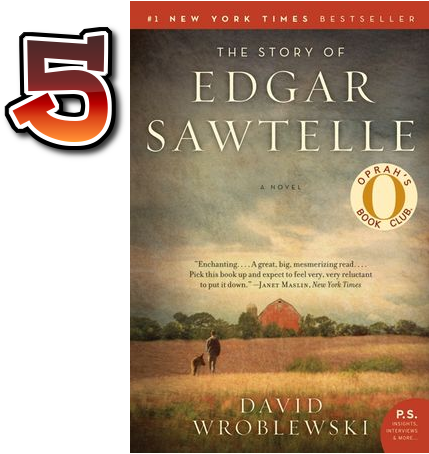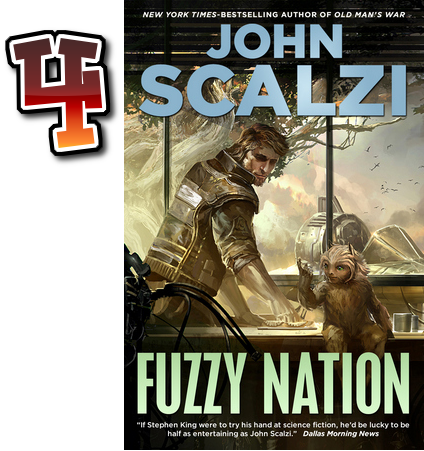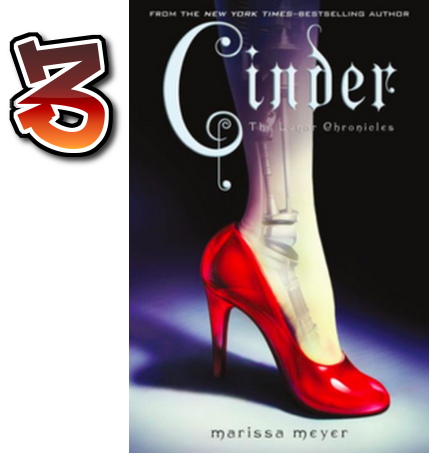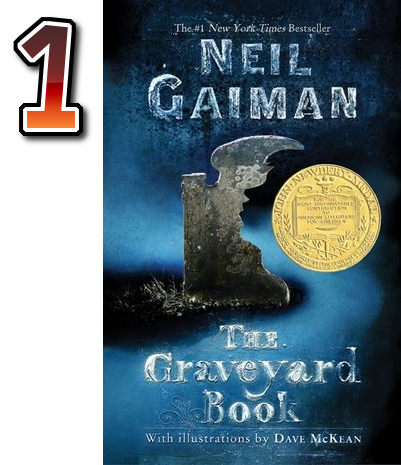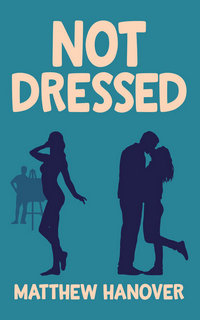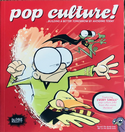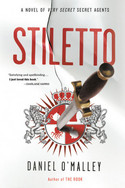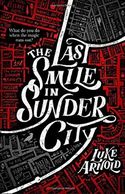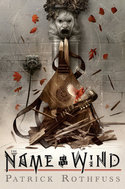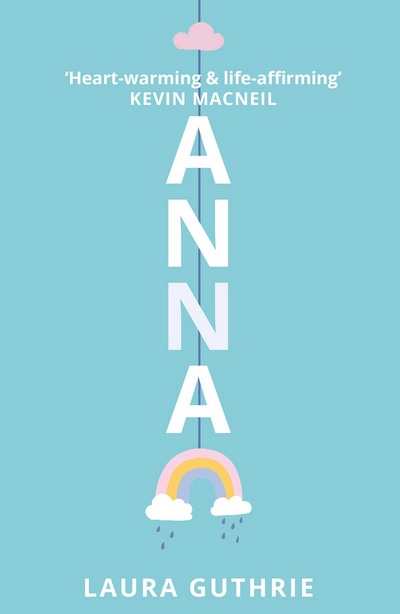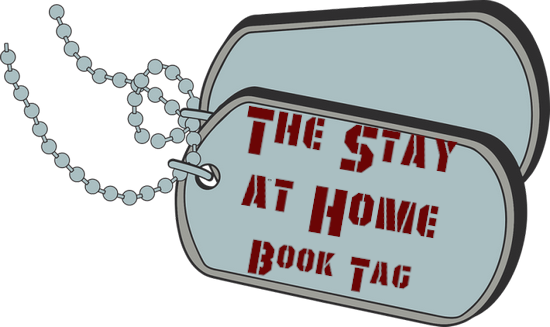
I saw this tag over on this one from Witty and Sarcastic Book Club last week and figured I’d better join in the fun soon—our Stay at Home order is set to expire at the end of this month, and I may not get another chance.
Laying in Bed: A Book You Could/Have Read in a Day
This one gave me some trouble, honestly, if you’re committed, what book can’t you read in a day? But…I’m going to go with:
by Matthew Hanover
I didn’t read this in a day, but man, I could’ve. This book (like last year’s Not Famous) is effortless to read. When I started this book, it was late in the day and I thought I’d just stick a toe in the water, maybe read about 10% of it. Before I knew it, I was about a third into the book (and were it not for the time of day, I’d have probably finished it in one sitting!). It’s funny, it’s sweet, it’s infectious, it’s engaging as anything I can remember. I cared about these characters and got invested in their lives faster than I typically do. It’s as comfortable as staying in bed should be.
In case you’re curious, here’s my post about it.
Snacking: A Guilty Pleasure Book
by Dave Kellett
I’m honestly troubled by the idea of “guilty pleasure.” If you dig a piece of fiction, you dig a piece of fiction—why feel bad about it?* But, I ended up going with this collection of Sheldon comics. I love this strip and read them every time that Kellett posts a new one. I don’t let myself sit down and read through a collection (or part of one) very often, I feel like I should be reading “a real book,” or something I could blog about—or, you know spending time with my family, I guess. So, this is a pleasure that makes me feel guilty when I indulge (which I guess undercuts my opening line…oops).
* Note how I don’t go for the cheap Dan Brown joke here…
Netflix: series you want to start
by Joe Abercrombie
Abercrombie’s Norse-influenced YA trilogy has appealed to me since it was announced. Especially as it’s complete, there’s no good reason I can’t tackle it—the entire trilogy is about as long as some epic fantasy novels, I don’t know what I’m waiting for.
Dan Willis’ Arcane Casebook is also right up there. I hopefully will get to both in 2020.
Deep Clean: a book that’s been on your “to be read” list for ages
by Daniel O’Malley
I loved O’Malley’s The Rook, but read it long before I launched this thing, so I didn’t write anything about it—and then re-read it so I could get ready for Stiletto, and took so many notes I couldn’t get through them all to write something. Anyway, this came out in ’16 and I heard so many lukewarm things that I haven’t been able to get myself to read it. It’s right there on top of my bookshelf, right where it’s been since July 2016 and I don’t know when it’s coming down.
Animal Crossing: a book you recently bought because of hype
by Luke Arnold
A former soldier turned PI tries to help the fantasy creatures whose lives he ruined in a world that’s lost its magic in a compelling debut fantasy by Black Sails actor Luke Arnold.
Welcome to Sunder City. The magic is gone but the monsters remain.
I’m Fetch Phillips, just like it says on the window. There are a few things you should know before you hire me:
1. Sobriety costs extra.
2. My services are confidential.
3. I don’t work for humans.
It’s nothing personal–I’m human myself. But after what happened, to the magic, it’s not the humans who need my help.
Walk the streets of Sunder City and meet Fetch, his magical clients, and a darkly imagined world perfect for readers of Ben Aaronovitch and Jim Butcher.
How can I say “no” to that?
Yeah, this is on the list because of the hype, but when I went to find some examples of the hype that sold me, I could only find this one from Witty and Sarcastic Book Club, which was enough on its own, honestly. Still, if you’re reading this and I’ve just snubbed you. Sorry. Correct me and I’ll throw a link up here.
Productivity: A book you learned from, or that had an impact on you
by Michael Greger M.D. FACLM, Gene Stone
This is a book that was recommended to me as part of a medical program I’m in (in an effort to forestall any future cardiac events)—I’m not convinced by all of what it says, but it’s helped me make significant changes to my life—and will continue to do so.
In case you’re curious, here’s my post about it (the post is about the library’s copy of the audiobook, I have the hardcover now—it’s heavy enough I could probably organize an exercise regimen using only it as a weight.
Facetime: a book you were gifted
by Patrick Rothfuss, Illustrated by Dan dos Santos
My kids got this for me for Father’s Day in ’17—still one of my favorite gifts from them. A gorgeous edition of one of my all-time favorite books.
Self-care: what is one thing you’ve done recently to look after yourself
Ehhh…not much, really. This is the kind of thing I’m not good at.
Bonus: name a book that is coming out soon
by Ian Shane
Ian Shane’s Postgraduate was one of my favorites from 2019. If this is almost as good, it’ll be one of my favorites of 2020.
Ex-jock Rob and socially awkward Liz weren’t likely to become best friends, but they’ve had each other’s back since college. On a night both of their romantic lives implode, they make a pledge; if they aren’t married by Rob’s fortieth birthday, they would marry each other. With a year left before their deadline, Rob and Liz make a mad dash to find “The One,” while navigating a minefield of modern dating complications. They must deal with skeptical friends, faces from the past, and hidden jealousies and feelings neither one of them will ever admit to.
From Ian Shane, author of Postgraduate and Radio Radio, comes an unconventional one-in-eight-billion romantic comedy. Platonic Comedy is a contemporary When Harry Met Sally that is perfect for fans of Nick Hornby, Jonathan Tropper, and Matthew Norman.
As usual, I’m not tagging anyone in this—but I’d like to see what you all have to come up with.


 We start off this week seeing what Sophia was up to in around the letter Tom wrote her as he was leaving town (I really should’ve read this chapter a couple of weeks ago)—there’s not much there, but a little bit of humor involving Black George and his conscience. Mr. Western and his sister get into an argument over the way he’s raised Sophia, and he essentially gives his daughter over to her management.
We start off this week seeing what Sophia was up to in around the letter Tom wrote her as he was leaving town (I really should’ve read this chapter a couple of weeks ago)—there’s not much there, but a little bit of humor involving Black George and his conscience. Mr. Western and his sister get into an argument over the way he’s raised Sophia, and he essentially gives his daughter over to her management.![]()









